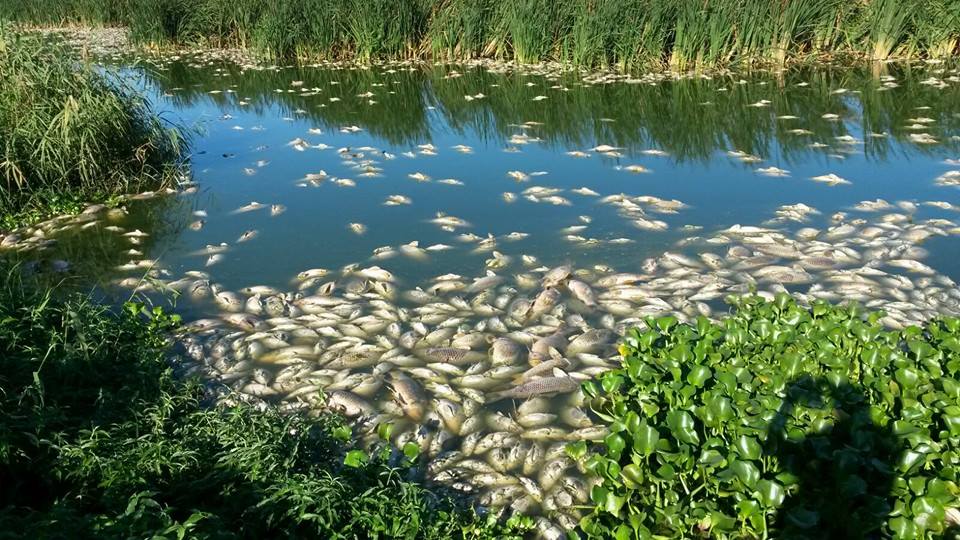Residents in Zeekoevlei were left dumbfounded on Friday after heaps of fish washed up on the shores of the lake on Fisherman’s Walk, as a result of a water disease. The City of Cape Town declared the water contaminated by the Herpes Koi Virus. The area, a well-known fishing spot for the residents of Pelican Park and a playground for children, has been tainted by pollution and litter.
Residents have lodged complaints that the water in the vlei is a health hazard to them after a rotting smell emerged. Resident Mymoena Valley says that she is concerned about the health of the community. Valley said that residents in the area have flocked to the day hospital for medical assistance after showing signs of diarrhoea and vomiting when consuming the fish.
“People are getting very sick in the area and the dirt is just piles up. It stinks…” says Valley.
The Pelican Park resident said that earlier this week when she visited the vlei people were at the area collecting the fish. Vallai raised her concerns that children often play in the area and that the stench had caused them to come down with chronic coughs.
“Ever since these kids played close to these waters they can’t stop coughing,” says Valley.
Zeekoevlei ward councillor Shaun August confirmed that the water is contaminated at Fishermen’s Walk. He said that although the water had caused fish to die it was not a health hazard to human beings, however, that residents are advised not to remove or eat the fish in the area.
“The Herpe Koi Virus has resulted in sea life to die. We advise people to stay away from the water even though it is not a hazard to them,” said August.
Two teams have been deployed from the City of Cape Town’s Environmental Affairs and Solid Waste Management to clean the area consisting of several people each. August said that officials are currently clearing piles of refuse bags of decomposing fish.
“There are black bags of fish being collected and we have decided to deploy another team to assist in collecting,” he said.
It is estimated that approximately 5 000 individual fish or 6 to 7 tons of fish have died. More bodies are being discovered as the fish bloat and rise to the surface.
“Fish kills, which refer to a localised die-off of fish populations, often occur at this time of the year with the change of seasons when water levels are low and temperatures are high. Fish sometimes become stressed during breeding and they may pass on infectious disease due to the grouping of large numbers of adult fish together,” explained Asieff Kahn, area manager, False Bay Nature Reserve.
The cause of the kill is being ascertained but natural causes are suspected. Lab results today of samples taken yesterday indicate low traces of algal toxins well below the guideline limits in the affected area.
“Samples taken this afternoon indicate no toxins present in the affected area,” added Kahn.
The fish bodies are being transported to the City’s Vissershok landfill site.
There has also been a fish kill reported on another unconnected system (Keysers River/Westlake/Zandvlei area).
August said he would be requesting that the Department of Health continuously monitor the water until the virus has cleared.
“I want them to do a survey on the water so we can continuously monitor it,” he added.
The City has warned residents not to eat the fish and urges members of the public to stay clear of the area while the fish are being collected. (Nailah Cornelissen)






 WhatsApp us
WhatsApp us 

